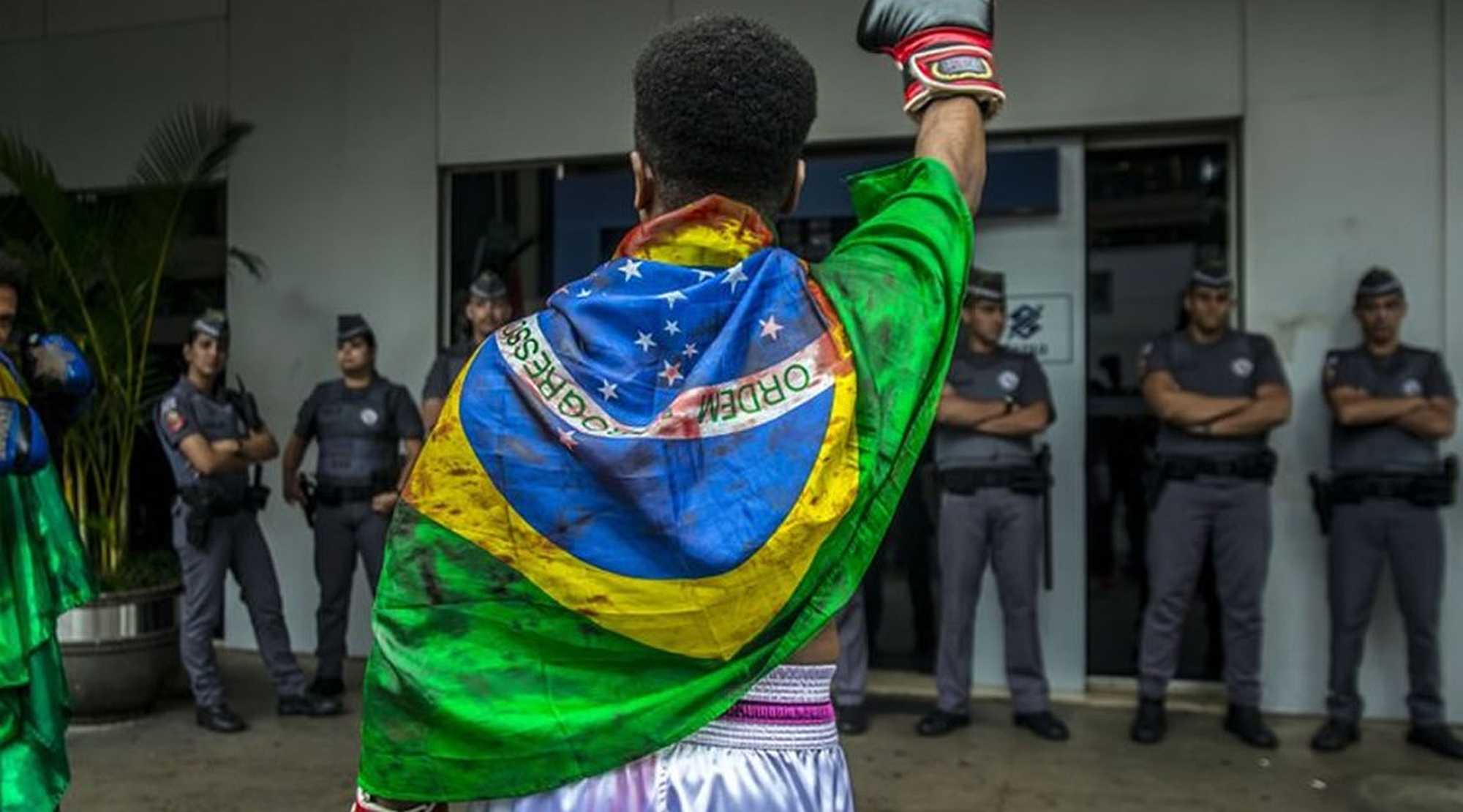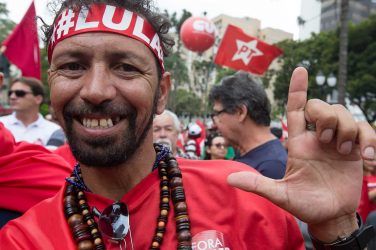The great debate in the US, these days, seems to revolve around whether rioting and looting and using violence can help or harm the fight for racial justice, which seems to be riling people up way more than the issue at hand, the murder of George Floyd and the systemic racism that made it possible.
The answer is complex and slippery, but violence has, to some extent, given political agency to blacks in the United States, whereas nonviolence has kept their Brazilian counterparts hidden, tucked away and largely ignored.
The ways in which the United States and Brazil dealt with their populations descendant from the Africans they brought as slaves to build their colonies and enrich their elites were vastly different. The US belongs to the group of nations that opted to end slavery, but segregate blacks, establishing racist, but Constitutionally backed, laws.
Brazil, on the other hand, established dubious academic theses – dating back to the 19th century, even before slavery was outlawed – that supported racial whitening, in an effort to ‘breed out’ African features and genes from the Brazilian gene pool through miscegenation.
Racial mixing in Latin America was incorporated in the academic literature, particularly in the first half of the 20th century, was a positive alternative to ethnic and racial segregation and dehumanization that had led to the Jewish holocaust and been a source of violent conflicts in the United States during the Jim Crow era and in South African apartheid in the 1950s and 1960s.
The Brazilian academic consensus regarding racial mixing began to shift in the later years of the 20th century. With the rise of multicultural discourses and identity politics, the practice began to be denounced for what it was – a myth to conceal and support the reproduction of racial inequalities and systemic racism.
Miscegenation and the myth of Brazilian color-blindness gave rise to a population devoid of enough tools to band together and fight for rights because they were taught, conditioned to ignore the blackness running through their veins.
While one tactic led to violence, riots, protests, the other led to a country where vast groups of people often fail to even acknowledge that they are black. Their traditions and customs were incorporated into society without expressive credits to black culture, denying them the right of pride for their race and heritage in the public sphere, outside of their communities.
It is no coincidence that the number of Brazilians who identify as either black or brown has been on the rise in the 21st century. The shift runs side-by-side with the empowerment of black movements in the country, in addition to affirmative action policies put forth by the State.
In seven years, between 2012 and 2018, the number of Brazilians who identified as black — which also includes brown for census purposes — was up nearly 30%. Between 2018 and 2017, the jump was of 32.2%.
Similarly, the number of Brazilians who identify as white has been steadily on the decline, starting around the same time. Up until 2014, the majority of Brazilians identified as white, whereas now browns (pardos) make up the majority of the population.
Governmental affirmative action policies surely play a part, but not just because citizens might directly benefit from being black or brown in regard to access to higher education.
Adriana Beringuy, researcher of the Brazilian Institute of Geography and Statistics (IBGE, for its Portuguese acronym), explained that people who reconsidered their race because of affirmative action pass this new identity on. Their children, and even older family members, assimilate the new identity, creating a restructuring of the culture.
With these shifts, black movements gained more visibility, particularly in light of the boom of social media platforms earlier in the century. Mainstream media turned their attention to issues concerning black Brazilians, which had been largely ignored throughout our history.
An increasingly militarized and violent police has been indiscriminately killing citizens — the vast majority black and poor — and have recently gained international attention. The brutal killing of people in the favelas throughout Brazil, and most notoriously in Rio de Janeiro, at the hands of police is as intricately woven into the fabric of Brazilian society as samba or football.
What changed is that blacks are now being listened to. Blacks are taking to the streets and to social media to denounce the injustices committed against their communities.
One case that attracted some media attention happened recently. On May 18, just a week before Floyd’s death, three police officers, who were supposedly pursuing suspects, stormed into a home in the Salgueiro favela in Rio where six black, unarmed cousins were playing together.
The officers opened fire, shooting 14-year-old João Pedro Matos Pinto in the back. They took João Pedro away in a helicopter, leaving the family with no information regarding his whereabouts or condition. More than 17 hours later, the family found his body at the coroner’s office.
Another instance took place in September of last year. Ágatha Félix, 8, and her mother were returning to their home in Complexo do Alemão in Rio when police shot at the van they were traveling in, killing the girl.
These are no isolated incidents, but part of an outrageous trend. In the last decade, police have killed more than 33,000 civilians — at least 75% of them were black men. There have been some protests, particularly within the communities most affected by that violence, but nothing like the uproar seen in the United States.
For as racially divided, unequal and unjust the United States is, American blacks have been able to organize and fight for justice for longer, in a more cohesive way.
Throughout the 20th century, there were significant uprisings in Chicago (1919), New York City’s Harlem neighborhood (1935), Detroit (1943) and Los Angeles (1943, 1965, 1992). In almost all cases, the unrest had been triggered either by direct police violence or their unwillingness to intervene when violence was being perpetrated against blacks.
Public attention only began to really pick up steam in the Floyd case several days after Derek Chauvin pressed his knee to the black man’s neck for almost nine minutes on May 25 – when blacks and whites swarmed the streets of Minneapolis and other cities across the United States.
Social unrest has proved to be the only language most white Americans understand in the face of racial inequality. Black Brazilians weren’t allowed that language, and it has cost them centuries-worth of systematic killings, hidden in plain sight.
This article appeared originally in Open Democracy https://www.opendemocracy.net/













